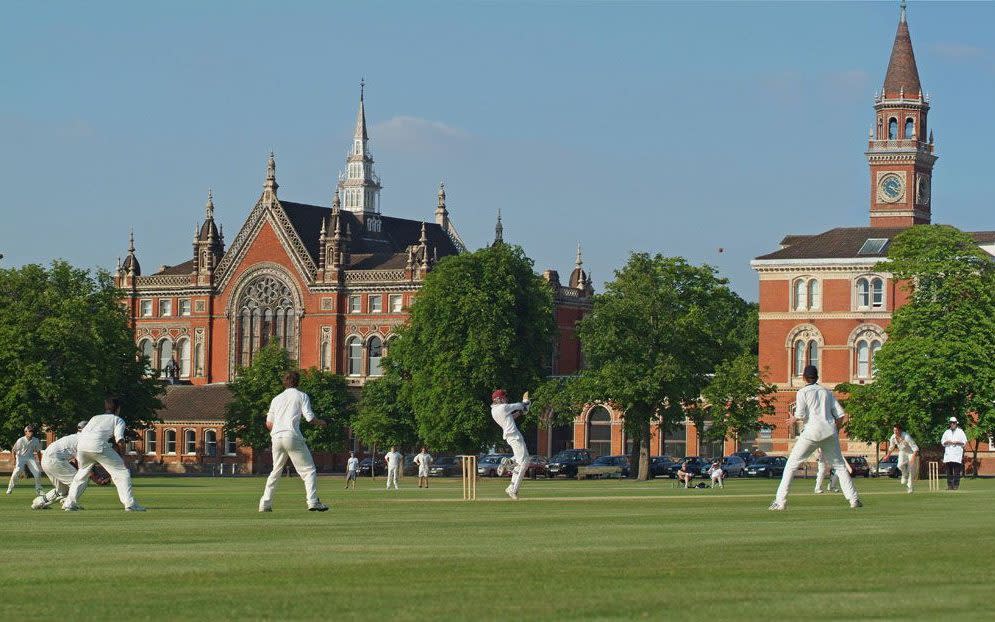Private school fees rise 6.2pc to brace for Starmer’s VAT raid

Private schools’ fees are set to rise by more than two-and-a-half times the rate of inflation as they brace for Labour’s tax raid, a first analysis has revealed.
Data collated by The Telegraph predicts an average 6.2 per cent hike for parents in the 2024/25 academic year, despite inflation coming down to 2.3 per cent.
It amounts to a 15 per cent rise across two years, despite the improving economic picture, suggesting schools may already be passing on some of the financial uncertainty threatened by Labour’s pledge to impose 20 per cent VAT on the independent sector.
Despite publishing virtually no detail on the scope or timing of the pledge, Sir Keir Starmer has promised to introduce the policy “straight away” should Labour win the election.
Independent school leaders have warned that being forced to pay VAT will result in lower-quality education, higher fees, and in some cases closures, with many smaller and medium-sized private schools already on a financial “knife edge”.
It comes after fears over its impact were partly blamed for a drop of nearly 3,000 pupils starting at private schools this academic year compared to 12 months earlier.
On BBC Question Time on Thursday night, Labour’s Wes Streeting claimed independent schools were “pleading poverty”.
“I know there’s lots of opposition from independent schools, who have pleaded poverty and say people will be priced out,” he said.
“Independent school fees have risen beyond inflation every year since 2010. I say to the headteachers, you’re going to have to cut your cloth accordingly like state schools have had to.”
Nigel Farage, Reform UK’s honorary president, responded to the shadow health secretary’s comments, saying that Labour’s planned VAT raid was “not morally right” and would deprive young people of the chance to have “the best possible education”.
A report published on Tuesday by the education consultancy Baines Cutler suggested almost half of private school pupils - 224,000 - could be driven out by Sir Keir’s tax raid.
The new rise in fees means the average cost of day schools is likely to increase to £19,177 next year, with the fees for day pupils at boarding schools rising to £25,401 and full boarders costing families £45,079 a year.
However, some high-profile schools are raising their fees more than the 6.2 per cent average of the 455 institutions analysed by The Telegraph.
At the elite Wycombe Abbey girls’ school in Buckinghamshire, the cost will rise 7.5 per cent for day pupils and 6.8 per cent for boarders.
At Dulwich College, the alma mata of PG Wodehouse, Nigel Farage and actor Chiwetel Ejiofor, the fees are going up seven per cent.
If schools pass on the full expected 20 per cent increase to parents, on top of this year’s 6.2 per cent rise, the cost of many schools would become unaffordable, the new analysis suggests.
The average boarding school fees would rise to £54,094, eating up 94 per cent of the disposable income of the top 10 per cent of earners.
Meanwhile, average fees for day students would account for 40 per cent of disposable income.
Louie Gray, a student at Tring Park School for the Performing Arts, said in a letter to Sir Keir and his shadow education secretary Bridget Philipson this week: “Due to recent talks on the 20 per cent VAT increase for private schools, I have become very worried about my education.
“I am already on a scholarship and a bursary at Tring, which is just about bearable for my family.
“If the VAT increase went ahead, I would have no other option but to leave Tring.
“The bonds that I have made at Tring cannot be compared to the bonds I could make anywhere else.”
The Independent Schools Council recently warned of the “spectre of VAT already looming large in parents’ minds”.
On Thursday, Julie Robinson, the ISC chief executive, said: “Schools are working hard to keep fees affordable for parents – as evidenced by the below-inflation average fee rise for 2023-24.
“It is too early to say what average fee rises will look like for next school year, but we know that schools will all be working within their own individual set of circumstances. In addition, many costs – particularly food and energy costs – are still rising above inflation.
“Any fee rises will also take into account a fair pay rise for teachers, and many schools will have been hit with the rise in pension contributions from April.”
Some private schools, such as Taunton, are already making public pledges not to pass the full value of a 20 per cent tax to parents.
The Somerset school has promised to keep any fee increase owing to VAT below 10 per cent.
However, in an apparent criticism of some of the stances of other institutions, it warned on its website: “We recognise the approaches of other schools may vary, but politely question the suggestion that VAT can be absorbed by a school entirely, with no loss of quality, and urge parents to be conscious of schools pre-emptively raising fees or planning to pass all costs on to parents.”
Labour claims its tax policy will raise £1.7 billion for the state sector, a position disputed by private school heads and some independent experts.
The party says that “independent schools have raised fees above inflation for well over a decade and do not have to pass Labour’s proposed change onto parents”.


